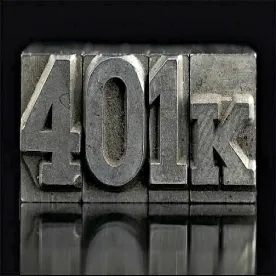Special Distributions to Qualified Participants
Our first article discussed CARES Act provisions designed to help your 401(k) participants with temporary loan enhancements. Here we discuss a second provision of the Act that can help participants who are affected by the coronavirus (called “qualified individuals”*). This is a special coronavirus-related distribution (a CRD). Though we discuss this in the context of 401(k) plans, the CRD provision applies to all qualified plans, 403(b) plans and IRAs as well.
The following chart compares the CRD to other “distributable events.”
| Pre-CARES Act Distributions | CRDs |
| Require a “distributable event” (such as death, disability, termination of employment or termination of a plan). Alternatively, 401(k), 403(b) and 457(b) plans may permit “hardship” distributions. | Require that the participant be a qualified individual* and that the distribution be made in 2020. |
| Hardship distributions of deferrals require a participant to meet criteria showing that they are experiencing an “immediate and heavy” financial need. However, most plans also apply the hardship standard to other contributions sources. | No financial hardship is required beyond a self-certification that the participant is a qualified individual.* |
| The amount of a hardship distribution may not exceed the amount needed to satisfy the need plus the taxes or penalties that may result from the distribution. | A qualified individual may take a CRD of up to $100,000.
Further, a CRD may be taken from IRAs and retirement plans other than 401(k), 403(b) and 457(b) plans. |
| Hardship distributions are subject to income tax in the year of distribution, a 10% excise tax if the participant is under age 59-1/2 and may not be repaid to the plan. | A CRD may, at the election of the participant, be taxed over a period of up to three years and is not subject to the 10% excise tax.
Alternatively, a CRD may be repaid to the plan from which it came, to another qualified plan or to an IRA. Repayment may be made over a three-year period. A qualified individual may elect a combination of taxation and repayment. Comment: As a result of this flexibility, a CRD could be a more attractive option for participants because of the flexibility to take it into income or repay it to a plan or IRA. |
| If a participant takes a loan instead of a distribution, the participant must repay the loan, with interest, in substantially equal quarterly installments, over no more than five years. | CRDs may be repaid without interest, but the repayment period is limited to three years. There are no specified installment payments requirements, so it appears the CRD could be repaid in a lump sum at the end of the three-year period.
Comment: In this respect, a CRD that a participant expects to repay may be somewhat less attractive, especially in light of the extension on repayment of a participant loan provided for under the CARES Act. |
We anticipate that Treasury or the IRS will issue guidance on the circumstances and timing of when taxes will have to be paid. If a plan is administered in a manner consistent with this special distribution rule, it will not need to be amended until the first plan year beginning after January 1, 2022. Thus, the availability of CRDs from your plan may be adopted administratively, but the plan will need to be amended to provide for this distribution, just not right now.
Note that your decision on whether or not to adopt the CRD is a “settlor” (i.e., plan sponsor) decision, not a fiduciary one. That said, implementation of the decision will be a fiduciary act.
As noted earlier, this special CRD provision is temporary; it applies only during 2020. Plan sponsors will need to decide whether to implement this provision. Most recordkeepers have or will be sending out a notice that the plan will be administered to provide for CRDs (and other CARES Act changes) unless you opt out (though we are also aware of some recordkeepers that require an opt in if the plan document is not using the recordkeeper’s pre-approved form). In the opt out scenario, you will be deemed by the recordkeeper to have approved this change to your plan if you do not opt out.
In any event, you should consult with the plan recordkeeper and your advisor on a number of issues:
-
How will participants be notified that CRDs are available? The Act does not include a requirement for notice to your participants, but plan sponsors should consider doing so and coordinate with the recordkeeper.
-
Will the recordkeeper accept and implement the self-certification that participants are qualified individuals?*
-
Assuming the recordkeeper will administer the distributions, will it charge for them? (We have learned that several recordkeepers will be waiving charges for CRDs.)
-
If the plan is using a preapproved document, will the recordkeeper take care of the amendment before the deadline?
The coronavirus pandemic has created severe hardships for millions of employees throughout the country. The CARES Act is attempting to provide relief to those hardest hit.
* Section 2202(a)(4)(A)(ii) of the CARES Act defines a “qualified individual,” as an individual “(I) who is diagnosed with the virus SARS– CoV–2 or with coronavirus disease 2019 (COVID– 19) by a test approved by the Centers for Disease Control and Prevention, (II) whose spouse or dependent (as defined in section 152 of the Internal Revenue Code of 1986) is diagnosed with such virus or disease by such a test, or (III) who experiences adverse financial consequences as a result of being quarantined, being furloughed or laid off or having work hours reduced due to such virus or disease, being unable to work due to lack of child care due to such virus or disease, closing or reducing hours of a business owned or operated by the individual due to such virus or disease, or other factors as determined by the Secretary of the Treasury (or the Secretary’s delegate).” Employees may self-certify that they meet this definition.






 />i
/>i

